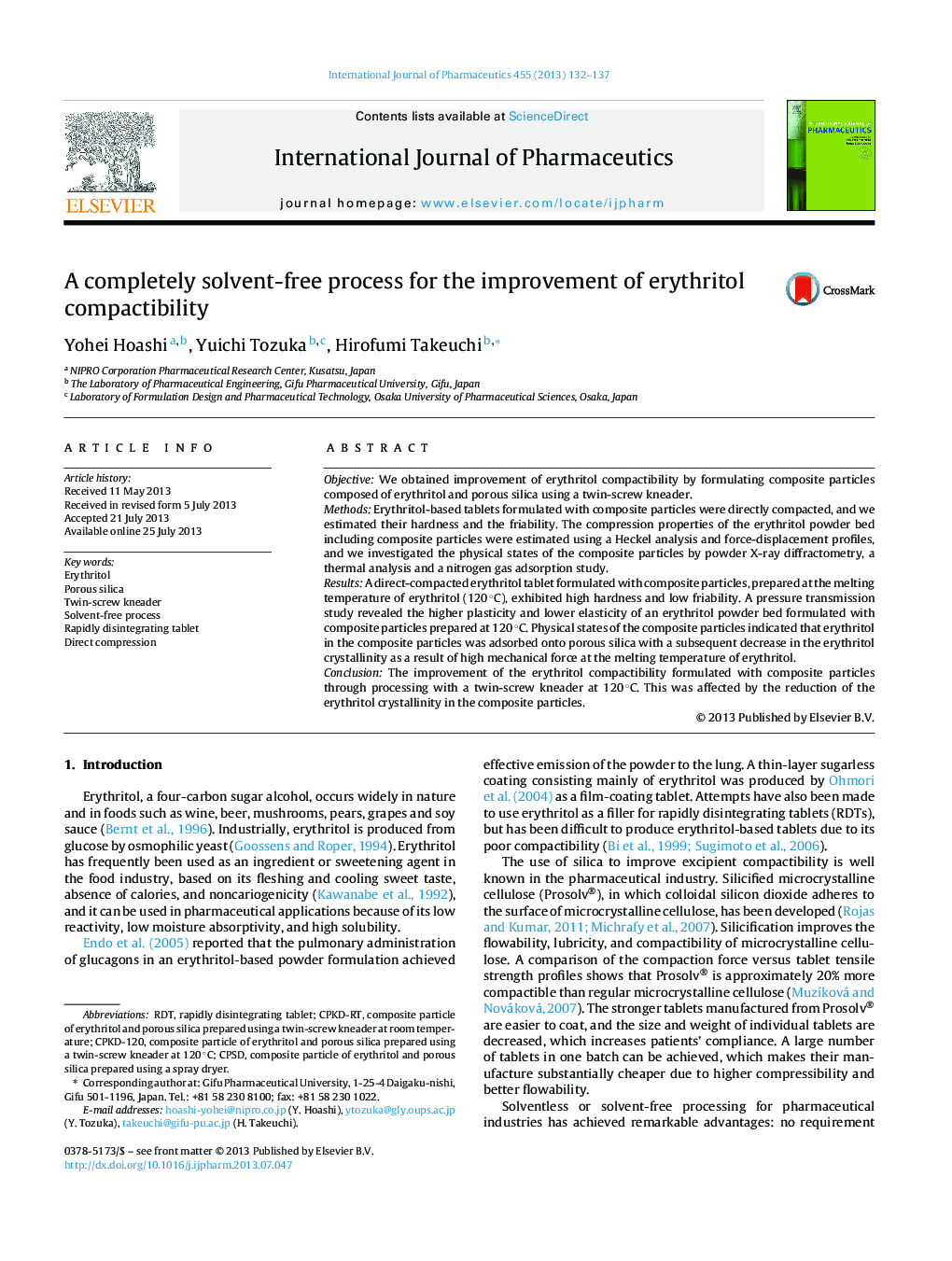| Article ID | Journal | Published Year | Pages | File Type |
|---|---|---|---|---|
| 2502089 | International Journal of Pharmaceutics | 2013 | 6 Pages |
ObjectiveWe obtained improvement of erythritol compactibility by formulating composite particles composed of erythritol and porous silica using a twin-screw kneader.MethodsErythritol-based tablets formulated with composite particles were directly compacted, and we estimated their hardness and the friability. The compression properties of the erythritol powder bed including composite particles were estimated using a Heckel analysis and force-displacement profiles, and we investigated the physical states of the composite particles by powder X-ray diffractometry, a thermal analysis and a nitrogen gas adsorption study.ResultsA direct-compacted erythritol tablet formulated with composite particles, prepared at the melting temperature of erythritol (120 °C), exhibited high hardness and low friability. A pressure transmission study revealed the higher plasticity and lower elasticity of an erythritol powder bed formulated with composite particles prepared at 120 °C. Physical states of the composite particles indicated that erythritol in the composite particles was adsorbed onto porous silica with a subsequent decrease in the erythritol crystallinity as a result of high mechanical force at the melting temperature of erythritol.ConclusionThe improvement of the erythritol compactibility formulated with composite particles through processing with a twin-screw kneader at 120 °C. This was affected by the reduction of the erythritol crystallinity in the composite particles.
Graphical abstractFigure optionsDownload full-size imageDownload high-quality image (158 K)Download as PowerPoint slide
